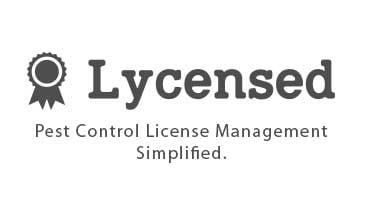Wasp Control & Removal
Do you have a wasp infestation? Contact Plunkett’s today for wasp pest control services to rid your space of stinging insects!
About Wasps
A wasp is an insect of the order Hymenoptera and suborder Apocrita. Wasps have narrow waists, smooth skin, and four wings. Hornets are a wasp subset and have larger waists with similar skin and wings.
Yellowjackets can be identified by their bright yellow markings. Yellowjackets and hornets are both types of wasps within the wasp family (Vespidae). They are eusocial; their egg-laying queen lives with the non-reproducing workers. A hornet is the largest type of wasp.
No matter what type of stinging insect you have in or near your home, we can help. Plunkett’s offers:
- Hornet Pest Control & Removal
- Bee & Wasp Removal
- Yellow Jacket Control & Removal
- Stinging Insect Prevention
What Attracts Wasps?
Like most pests, a wasp’s main goal is finding food. If you have wasps in your space, then they probably think they can find a meal there. They’re attracted to your sugary drinks during a picnic and the fallen fruit in your yard, for example. Wasps are also attracted to the nectar and fragrance of flowers.
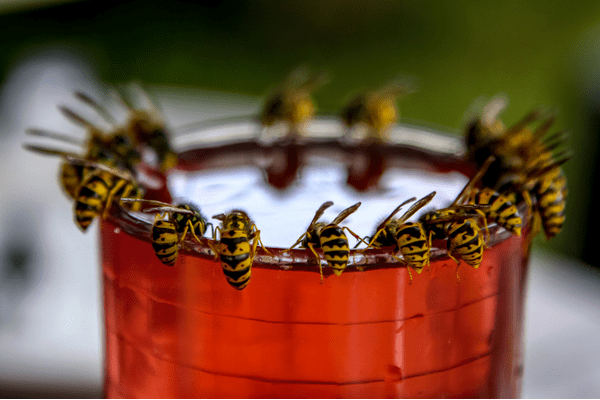
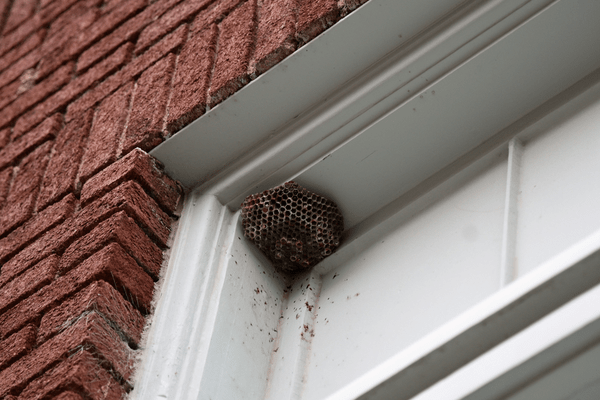
How are Wasps Getting Into My House?
Most of the time, wasps just enter your home through open windows and doors. If you want to leave your windows open, make sure they have screens.
During the spring and summer, wasps will often build nests around entrances and doorways to your home. They choose these areas because they’re commonly covered, which helps protect their nests from Mother Nature. The placement of their nests makes it easy for them to sneak into your home through the front door as you come and go.
Wasps often enter your home through attic spaces.
Vents and unsealed openings are perfect entryways for wasps. They may also invade your home through the fireplace. If you have a fireplace, make sure the flue is sealed properly when it’s not in use.
How Dangerous are Wasps?
Wasps can build incredibly troublesome nests and hives. If you have a wasp problem, you need to be careful; yellowjackets and hornets can sting multiple times. Wasps can be especially dangerous if you are allergic to their stings.
When Do Wasps Sting?
Wasps sting when they become agitated or when they feel they’re being threatened. Even though it might be your first instinct, do NOT plug the entrance hole to a wasp nest. When confined, wasps become agitated. Plus, they can chew through plasterboard, wood, and various other materials to find a way out.
Do-it-yourself wasp treatments are available but they can be dangerous and aren’t as effective as hiring a professional pest control company. Plus, these products often contain pesticides that can be harmful to people and pets if they are misused or mixed improperly. The most common result of home remedies? Multiple stings. You should let the professionals handle the wasps.
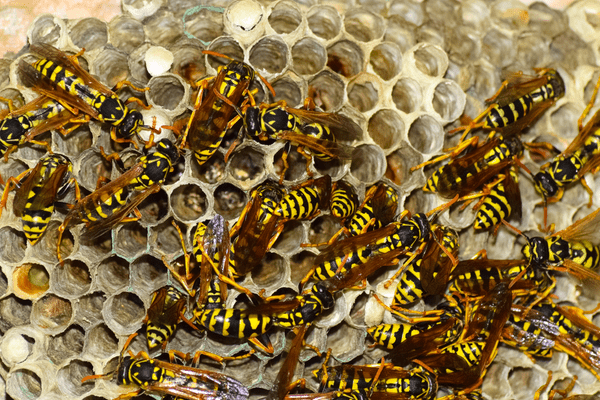
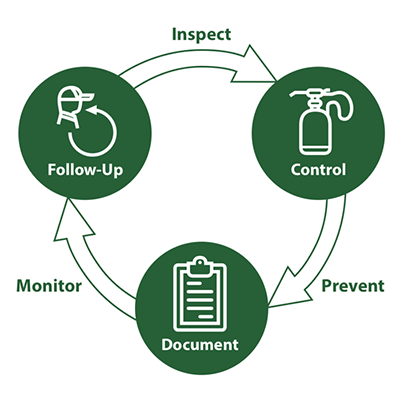
Pest Control: Wasps, Hornets, Yellowjackets, and More!
Plunkett’s can rid your home of a current infestation and prevent future wasp issues. Our stinging insects services include inspection, treatment, and removal of active nests.
Plunkett’s will treat areas of concern with a residual material to greatly reduce the likelihood of nest-building. Homeowners often get nets in the same area every year; a preventative treatment can help pro-actively stop this from occurring.
The expert team at Plunkett’s offers a 60-day guarantee on all nests treated! We want to reach the absolute best resolution to your pest problem. Ready to get started? Contact us today!Gest Wasp & Hornet Control With Plunkett's
At Plunkett’s, our goal is to get rid of wasps and prevent wasps from coming back in the most cost-effective way. We make every effort to be with you asap, usually within a day or two! Get a quote to get started with wasp control:
Frequently Asked Questions
What Should I Do for a Wasp Sting?
Treating a local reaction to a sting is simple. From cleaning the affected area with apple cider vinegar to relieving the pain with ice, there are several easy at-home remedies that can help ease your discomfort. Read our blog to learn more!
What is the Difference Between a Wasp, Yellowjacket, and Hornet?
Wasps, yellowjackets, and hornets all fit into the same category of wasp: social wasps. They all produce colonies every year with only the malted queen surviving winter. But despite their similarities, wasps, yellowjackets, and hornets differ in size, color, and where they build their nests. Learn more about what makes each of these stinging insects different!
How Can I Keep Wasps from Building Nests Near Me?
Wasps build nests in dark, sheltered, and warm places where they can easily access food. Stop wasps from building nests near you by sealing up crevices around your home, protecting your garbage, and blocking off any shady, hard-to-reach shelters like chimneys, vents, and porches. Looking for more tips on keeping wasps away? Read our blog!
Why Are Wasps More Active in The Summer?
Every spring, queen wasps emerge from their overwintering sites to seek new places to nest. When they find a suitable nest, they begin laying eggs to start a new colony. When the eggs hatch, the workers build out the nest while the queen continues to reproduce. By summer, wasp colonies have reached peak population.
How Do You Kill Wasps?
How to kill wasps: call Plunkett’s. Exterminating wasps should be left to a professional pest control company. Wasps are aggressive and will not hesitate to sting if they feel threatened. If you need pest control for bees and wasps, schedule a service today! Don’t make it a DIY project.
Are Wasps Aggressive?
Yes. Do not attempt to kill hornets or wasps on your own, especially if you are allergic to their stings. If you’ve got a wasp problem in or near your home, schedule a service right away.
